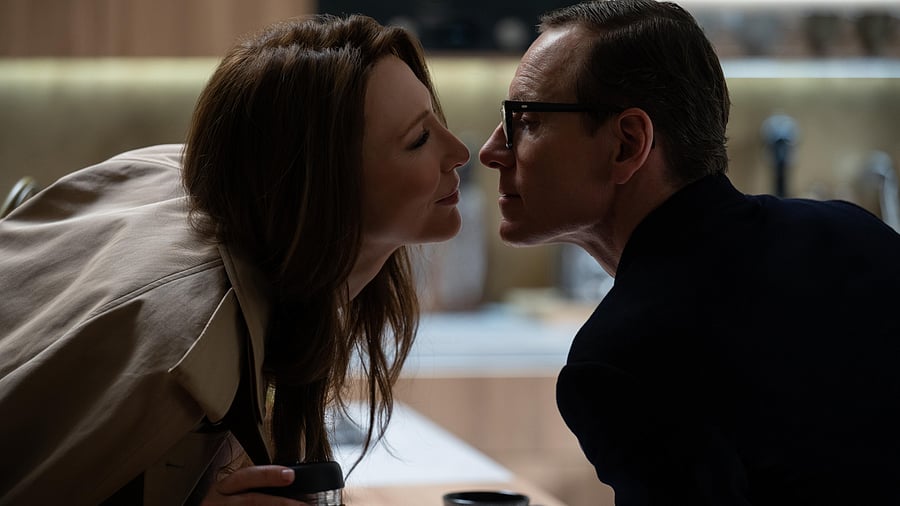
Credit: Special Arrangement
Black Bag opens with George (Michael Fassbender) entering a bustling London club. This is a long first shot, with the man – one half of a spy couple – passing ushers, check points and the dance-floor before he meets the man he’s there to meet. George is told about the leak of a malware called Severus. His brief is to trace the leak which has happened from the agency. The unhurried plot landing is followed by a perky, tone-setting interlude. The day of the week is marked in bold text across the screen, the background score goes whimsy, the six primary characters are introduced and brought together at a dinner table – George, with his sassy other half Kathryn (Cate Blanchett) must now break the mole. A truth drug is also in play; what follows is a series of juicy reveals, leading to an impulsive act of violence.
Here, at this plot turn, Black Bag hits you as that other kind of Steven Soderbergh film. It doesn’t have the beat and swagger of his heist films. Its core themes of intrigue are treated to a blend of classic tropes (Fassbender and Blanchett look at once intense and distanced, fitting well into this play of trust and looming deception) and a workaday realism. The spies, for all that mystery around them, still need to punch in and out to log office time. Writer David Koepp nods to the old-school in the way he builds the thrills, complemented with modern-day covert ops tools such as satellite surveillance and an AI lip reader. The film takes it slow with its tension and when it hits the highs, it hits clean – sample a sleekly shot drone attack set to an operatic score.
Black Bag doesn’t pitch itself as an expansive actioner where high stakes force style and treatment. Its thrills are organic and draw more on the sizzling chemistry between its lead players than the urgency for exposing the traitor. This is that rare self-aware spy comedy – it gets its laughs right even in the middle of tense polygraph tests, and it stays edgy, without trying too hard.